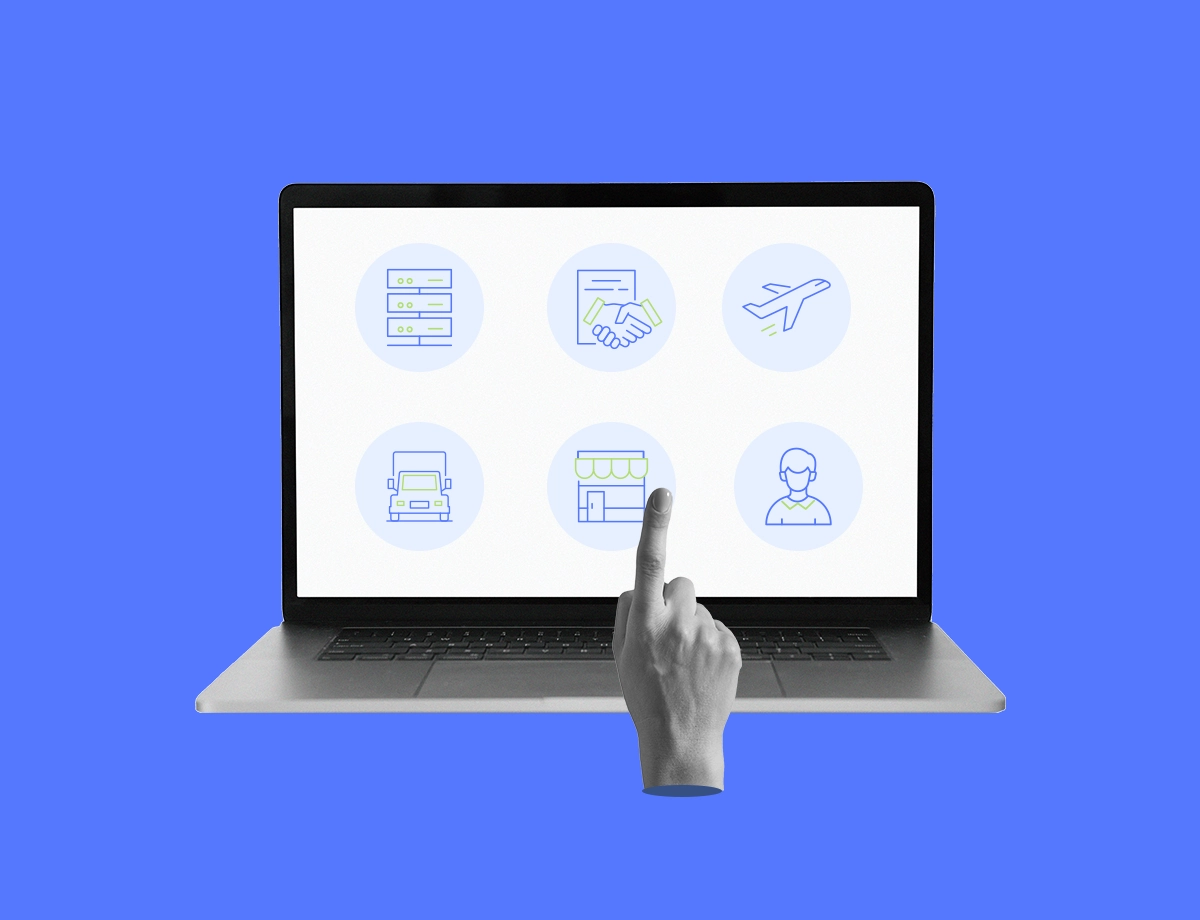Know your suppliers—this phrase has never been more critical than in today’s complex global supply chain networks. As companies expand and interact globally, understanding who you’re doing business with is essential for effective risk management.
Without proper supplier due diligence, your company could be exposed to financial crime, money laundering, and supply chain fraud.
The Importance of Knowing Your Suppliers
Supplier relationships can make or break a business as the world becomes more interconnected. Performing effective due diligence on these partners is not merely a regulatory formality but a strategic imperative that safeguards your operations and reputation.

The Complexity of Global Supply Chains
Modern production and distribution networks are complex, involving multiple tiers across various countries, each with legal and regulatory frameworks. For example, a technology company sourcing components from overseas may deal with vendors in regions with different compliance standards. This intricacy increases exposure to risks such as financial crime and criminal activity.
Consider a scenario where a manufacturer partners with a foreign supplier without fully understanding the local regulations. If that vendor engages in money laundering, the manufacturer could unwittingly become entangled in legal issues, leading to financial losses and reputational risk. Such third-party risks can jeopardize your company’s assets, highlighting the need for robust risk mitigation strategies.
Risks Associated with Unverified Vendors
Engaging with unverified vendors exposes your business to significant risks. One major risk is potential illegal actions, such as fraud and money laundering. Failing to conduct comprehensive background checks can lead to operational disruptions.
For example, consider an electronics components distributor. They faced substantial supply issues when a key supplier was shut down for regulatory violations. This incident underscores the importance of thorough due diligence. Knowing your supplier is crucial for compliance with legal and regulatory standards.

The Role of Effective Risk Management
A robust risk management strategy helps identify and mitigate potential hazards associated with your vendors. By assessing their financial standing and legitimacy, you can prevent disruptions in your operations and ensure continuous service delivery.
Effective risk strategies contribute to overall risk reduction and enhance your company’s resilience. Proactive measures like regular audits and compliance checks protect against immediate threats and strengthen your position in the market.
What Is KYV (Know Your Vendor) Verification?
Understanding the tools available for managing supplier relationships is crucial. One such tool is KYV verification, which plays a significant role in risk mitigation.
Know Your Supplier (KYS), also known as Know Your Vendor (KYV), is a systematic due diligence procedure that involves verifying the identities and credentials of your suppliers. This process ensures they are legitimate, financially stable, and compliant with all relevant local and international standards. Implementing a comprehensive KYS process is an essential component of effective risk management.

The Role of Know Your Supplier (KYS) in Risk Mitigation
Companies can significantly reduce risk exposure by conducting an in-depth risk assessment and background checks. Know Your Supplier (KYS) procedures help identify high-risk suppliers who may be involved in illegal activities or have a history of non-compliance. This proactive approach to risk mitigation safeguards your company’s defense against financial crime and reputational harm.
KYS vs. KYC: Understanding the Differences
While Know Your Customer (KYC) focuses on verifying clients, KYS is centered on suppliers. Both are crucial for comprehensive risk management, but KYS explicitly addresses risks in the supply chain.
Integrating KYS processes complements existing KYC efforts, providing a holistic approach to due diligence.
The Benefits of KYV Verification
Embracing Know Your Vendor (KYV) verification brings a multitude of benefits that extend beyond mere compliance. It is a strategic tool that enhances risk management, ensures legal adherence, and strengthens supplier relationships.
Mitigating Risks and Avoiding Financial Crime
A robust Know Your Supplier (KYS) process is pivotal in combating financial crimes like money laundering. By verifying suppliers’ financial standing and legitimacy, companies can prevent involvement in illegal actions that could compromise their financial integrity. A solid due diligence approach reduces risks and safeguards against possible hazards.
A thorough supplier due diligence process enables companies to identify high-risk suppliers and take necessary actions to mitigate associated risks. Risk assessment and risk analysis are key steps in this process, allowing businesses to make informed decisions and ensure business continuity.

Ensuring Legal and Regulatory Compliance and Strengthening Supplier Relationships
Adhering to legal and regulatory compliance is crucial. Conducting thorough supplier due diligence ensures companies comply with local regulations and international standards, helping mitigate risks and avoid costly issues.
This diligence process also reduces the chances of reputational damage from non-compliance. Financial institutions and stakeholders demand transparency. Companies can prevent ties with fraudulent or unethical entities by verifying beneficial owners.
Building solid relationships with suppliers requires verifying their identities and assessing their financial stability. Reviewing financial documents like balance sheets and income statements clearly shows a supplier’s ability to meet obligations.
Although the due diligence process can be time-consuming, expert services like Bancoli’s KYV verification can simplify and expedite it. This makes the process more efficient and manageable, and it also ensures compliance and solid supplier relationships.

Implementing Know Your Vendor (KYV) Verification in Your Business
Knowing the importance of Know Your Vendor (KYV) is one thing; implementing it effectively is another. Establishing a structured approach ensures the success of your Know Your Supplier program and enhances overall risk management.
Key Steps for Effective Know Your Vendor (KYV) Implementation

- Conduct Thorough Background Checks: Conduct in-depth background checks on all potential and existing suppliers. Utilize public records, consult trade journals, and verify the company structure to identify any previous instances of illegal actions or financial crime. This step is crucial in identifying high-risk businesses and mitigating risk exposure.
- Assess Financial Standing: Review your suppliers’ financial documents to evaluate their financial stability and integrity. Analyzing balance sheets, income statements, and similar documents helps you understand their capability to fulfill contractual obligations.
- Verify Compliance with Regulatory Requirements: Ensure suppliers comply with all relevant legal and regulatory requirements, including anti-money laundering laws and industry-specific regulations. Verifying beneficial owners and checking for any involvement in illegal activities is essential to maintain regulatory compliance and protect your company from potential penalties.
- Implement Continuous Oversight and Risk Mitigation: Establish a system of continuous oversight to monitor suppliers for any changes that may affect their risk profile. Regular risk assessments and updates to the due diligence information help mitigate ongoing risks.
Overcoming Challenges in Supplier Risk Management
Implementing KYV verification can present challenges, particularly the time investment required for due diligence and KYS procedures. However, this investment is crucial for effective risk reduction. By leveraging specialized services and technological solutions, businesses can streamline these processes, allowing them to focus on core activities.
Adopting enhanced due diligence procedures and conducting more frequent risk assessments is advisable for high-risk suppliers.
Leveraging Bancoli’s Know Your Vendor (KYV) Verification

To streamline your supplier risk management process and enhance your due diligence procedures, consider leveraging solutions like Bancoli’s KYV verification. This comprehensive verification service ensures compliance and mitigates potential risks associated with third-party relationships at a U.S. banking grade level.
Bancoli’s KYV verification is an add-on service that complements the robust security measures of the Bancoli Global Business Account (GBA). The GBA is a multi-currency bank account featuring 11 currency accounts, facilitating payouts in more than 50 currencies across over 200 countries.
To protect your company’s assets and maintain financial integrity, Bancoli employs advanced security measures, including military-grade encryption, multi-factor authentication, and fraud monitoring on every transaction.
Integrating Bancoli’s KYV verification into your due diligence procedure allows you to efficiently manage supplier relationships, reduce potential risks, and focus on strategic business objectives. This integration allows for effective risk reduction while navigating the complexities of the global regulatory environment.
In Conclusion
Prioritizing supplier risk management is a strategic necessity for safeguarding your business in an era of increasing supply chain fraud and financial crime. Implementing a robust KYS/KYV program goes beyond adhering to legal and regulatory requirements; it’s about protecting your company from risks that could lead to financial loss, reputational damage, or legal repercussions.
By incorporating a continuous Know Your Supplier (KYS) process, your business can strengthen its risk management strategies, ensure uninterrupted operations, and maintain the integrity of your global supply chains.
Proactive measures like comprehensive due diligence, continuous monitoring, and leveraging advanced solutions such as Bancoli’s KYV verification position your company for resilience and success in a complex global marketplace.





